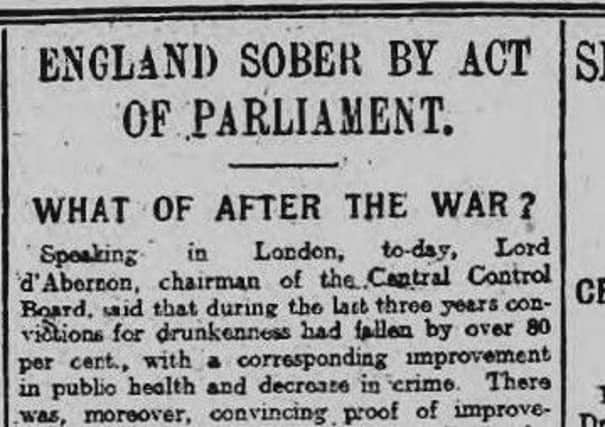Armistice 100: Government plans to prlong sobriety in post-war Britain


Speaking in London, Lord d’Abernon, chair of the Central Control Board, said that during the previous three years convictions for drunkenness had dropped by 80 per cent. He said there were corresponding movements in public health, disease and the treatment of children. Given all this, he backed a continuation of the war conditions.
The pre-war level of convictions for drunkenness ran at 200,000 a year “with their terrible accompaniments of crime, disease and death”, he said. For its part, the government had limited pub opening hours, enforced the dilution of beers and established a network of canteens. Price rises were next on the agenda. He was suggesting measures to be included in a forthcoming Act of Parliament.
Advertisement
Hide AdAdvertisement
Hide AdIn other news, there was an almighty row in Dewsbury after one elected member called another a liar in public. The meeting was that of the Dewsbury Board of Guardians, who were meeting to discuss whether one among them should be exempt from military service. When P H Wilson (Ossett) objected to the exemption, Mrs Lawson (Morley) said only people who had sent sons to “into khaki” [the military] could judge, which prompted him to call her a liar.
The chairman almost lost his rag, bellowing: “I protest against the use of that word. It is the most ungentlemanly thing I have ever heard.”